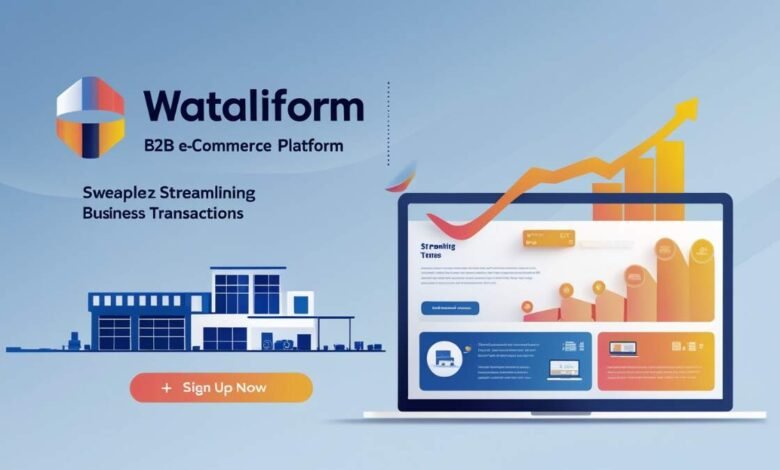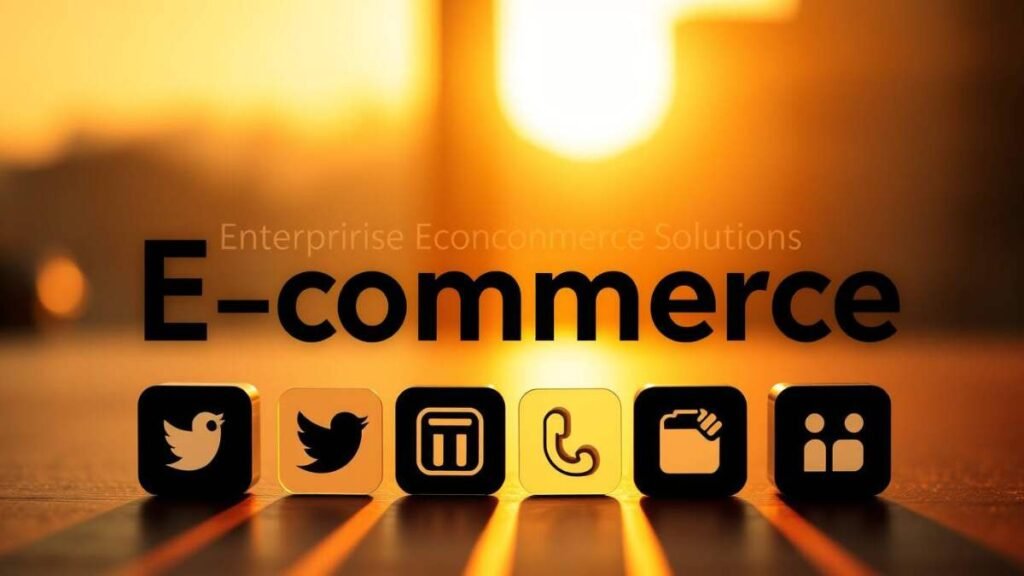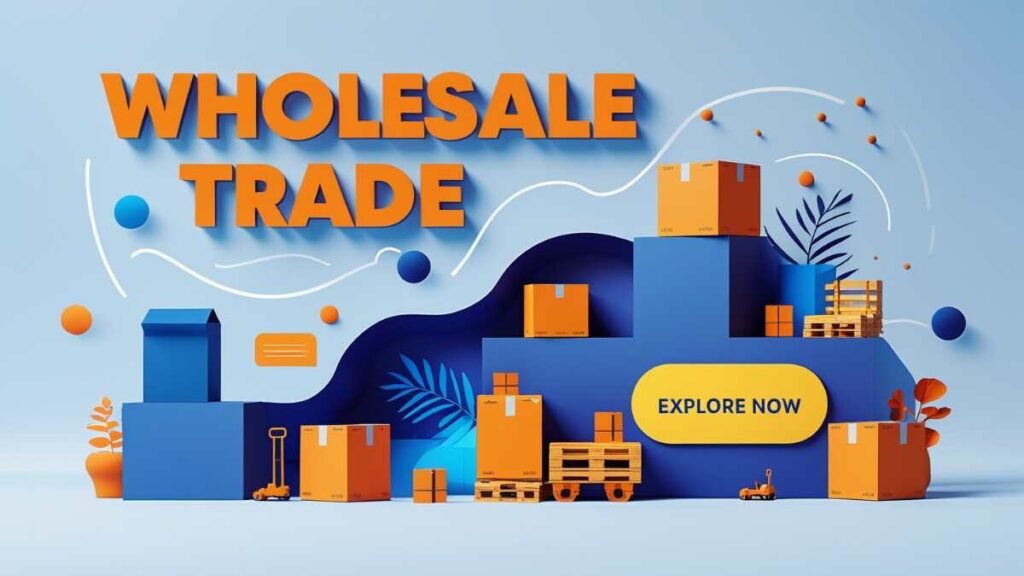
B2B e-commerce platform digital world and the ensuing sales operations find businesses embracing B2B e-commerce platforms as a way to become modern and achieve the objectives of a smart, tech-savvy customer base. What are B2B e-commerce platforms, and why are they the latest buzz for businesses today? Let’s see.
What is a B2B E-commerce Platform?
A B2B e-commerce platform is an online system designed for business-to-business transactions that allows businesses to buy and sell their products or services efficiently. While solutions for B2C are developed with high-volume purchases, repeat orders, and complex pricing scenarios in mind, solutions for B2B are entirely different.
These sites ensure manufacturers and wholesalers meet their different requirements through streamlining procurement, order management, and payments. In short, they provide a digital hub for B2B sales business software.
B2B E-commerce Platform Major Features
1. Scalability and Flexibility
A good B2B e-commerce platform scales up your business by letting it accommodate more products in a catalog, customers, and orders and transactions.
2. Integration with Current Systems
Seamless integration with ERP, CRM, and other tools to ensure smooth data flow and eliminate redundancies.
3. Personalized Customer Experiences
Advanced features like dynamic pricing and custom catalogs mean that every client will have a different solution to cater to their unique needs.
Benefits of Using a B2B E-commerce Platform
1. Efficiency and Automation
Automating all tasks from inventory management, invoicing, and shipping saves time and minimizes errors while providing abundant time for businesses to achieve growth.
2. Enhanced Customer Relationship Management
Integrated CRM tools allow businesses to track interactions with customers, manage leads, and increase the satisfaction of clients.
3. Enhanced Access to Markets
Digital marketplaces remove geographical barriers as businesses can now reach global clients through B2B online marketplace software.
Types of B2B E-commerce Platforms
1. Business E-commerce Platforms
This targeting involves wholesalers by focusing more on bulk transactions, multi-tired pricing, and keeping up with inventory management.
2. Business e-commerce
Is designed especially for manufacturers, having the remedies of supply chain management, tracing of orders, and direct sales to the businesses.
Enterprise E-commerce Solution

E-commerce enterprise solutions are versatile. It can manage significant data in transaction volumes and Vast operations. Some of its features include multi-site managing, global pricing strategies, and even advanced reporting capabilities. Suitable for enterprises undertaking considerable operations.
B2B Online Marketplace Software
B2B online marketplace software is the intermediary to businesses. It creates a location in which to talk and negotiate with buyers, including closing deals. What Alibaba and Thomas Net demonstrate in an e-commerce platform that makes smooth transactions easier.
B2B E-commerce Trends
1. AI and Automation
AI increases the capabilities for enhanced customer services and processes, besides enabling it to use predictive analytics and thus offering actionable insights.
2. Data-Driven Personalization
Satisfaction and retention from data are being used to personalize the experience, a high-end task that only just dynamic pricing and personalization suggestions do not get over
Challenge to Deploy B2B E-commerce Platform
There are many advantages of B2B e-commerce, but it is not without many challenges in the process. If there is awareness of the same and proactive measures to prevent the same, then the transition becomes smoother.
1. Legacy System Integration
Most of the organizations rely on legacy systems that do not integrate with new technologies easily. The compatibility or upgradation of existing tools is an essential success requirement.
2. Change Management
Employee training and change management related to a transition from traditional sales processes to an online platform would require the right onboarding and proper communication.
3. Data Security
As there would be sensitive information regarding clients, appropriate security measures are in place. The platforms that have end-to-end encryption, meet GDPR, and provide peace of mind are investments worth making.
How B2B E-commerce Platforms Transform Industries
1. Manufacturing Industry
E-commerce platforms for manufacturers streamline the supply chain for them, optimize their inventory management, and help in direct sales. Real-time data helps manufacturers foresee the demands and change their cycle of production.
2. Wholesale Trade

Wholesale trade also enjoys features such as bulk ordering, tiered pricing, and customized catalogs. Platforms also enable smooth logistics and delivery such that orders are delivered quickly.
3. Technology and SaaS Providers
B2B e-commerce portals allow tech firms to monitor subscriptions, license renewals, and customer accounts effectively. Personalized experiences at scale can be achieved.
B2B E-commerce Trends and Inventions
1. Blockchain Technology
Blockchain can allow for increased transparency regarding transactions. This therefore means that safe and traceable payments are possible. Smart contracts also enforce the agreements between the parties; therefore, they reduce conflict.
2. Internet of Things (IoT)
IoT will also enable tracking of orders and inventory management. This will, therefore, make the businesses track the inventory and be able to keep the correct stock. The supply chains will be streamlined.
3. Voice Commerce
B2B e-commerce will increasingly apply voice-enabled technology. Shoppers can order or monitor their shipment status by giving a voice command.
Conclusion
Adopting B2B e-commerce will not be a luxury but is necessary for businesses that want to be relevant on the markets. Whether manufacturing, wholesaler, or corporate, these operations will support business activities, improve customer satisfaction, and collect revenue. A digital marketplace is further developing into a new dimension making it vital to stay in front of such trends, and then it selects a perfect platform for long-term success in the market.
FAQs
1. What are the differences of B2B vs B2C E-commerce?
B2B e-commerce involves large bulk transactions, which usually involve negotiable pricing and repetitive orders, whereas B2C e-commerce is destined for the end consumer and offers non-negotiable prices with fewer units.
2. Why do businesses require scaling up their B2B E-commerce applications?
Scaling is the measure taken when an application shows potential growth in terms of volumes in transactions and business expansion without any break or disruption.
3. How does B2B online marketplace software boost sales?
This market software connects businesses globally, which expands your market reach and also to more customers.
4. What are some Key Features of an E-commerce Platform for Manufacturers?
Supply chain management, order support, inventory stock tracking, and integration in systems for production
5. How do Enterprise E-commerce Solutions support large-scale operations?
They provide advanced tools like multi-site management, real-time analytics, and global scalability, which can be used to address complex operations.
Read More: B2B Industrial E-Commerce





